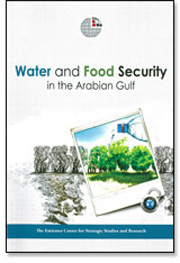Book contents
- Frontmatter
- Contents
- Figures and Tables
- Abbreviations and Acronyms
- Foreword
- Introduction
- Keynote Addresses
- Water Security in a Changing World
- Water Security in the Arabian Gulf Region
- 3 The Geopolitics of Water Scarcity
- 4 Water Security in the GCC Countries
- Water Resource Management in the Arabian Gulf Region
- Regional and International Food Security
- Water and Food Security in the UAE
- Contributors
- Notes
- Bibliography
- Index
4 - Water Security in the GCC Countries
from Water Security in the Arabian Gulf Region
Published online by Cambridge University Press: 05 September 2014
- Frontmatter
- Contents
- Figures and Tables
- Abbreviations and Acronyms
- Foreword
- Introduction
- Keynote Addresses
- Water Security in a Changing World
- Water Security in the Arabian Gulf Region
- 3 The Geopolitics of Water Scarcity
- 4 Water Security in the GCC Countries
- Water Resource Management in the Arabian Gulf Region
- Regional and International Food Security
- Water and Food Security in the UAE
- Contributors
- Notes
- Bibliography
- Index
Summary
“Water security,” as a term, emerged in the Arab world roughly four decades ago, when there was much talk regarding river water resource sharing, and the dependence of some downstream countries – such as Syria, Iraq and Egypt – on water from these rivers to meet their development plans.
Water security often occupied the headlines, creating a polarized atmosphere leading to political tension in the region; indeed, water began to be used as a political bargaining chip, and as a potential motivation for armed conflict. A deterioration of water quantity and quality was experienced in the downstream Arab countries, owing to growing demand along the length of these water sources as a direct result of social, agricultural, economic, and industrial development. The water crisis in the downstream countries continues to grow, with expanding demand greatly outweighing supply.
Generally, the concept of water security is encompasses two different areas: the first is purely political, and is linked to concerns arising from the fact that a large proportion (over 60 percent) of Arab water (including form the Nile, Tigris and Euphrates, and Senegal rivers) comes from neighboring countries, rendering the Arab countries that rely on this water (e.g., Egypt, Sudan, Iraq, Syria, and Mauritania) vulnerable to the upstream countries; One example being the occupation of the Zionist entity, depriving the Palestinians, Syrians and Lebanese of their legitimate right to use their water.
- Type
- Chapter
- Information
- Water and Food Security in the Arabian Gulf , pp. 81 - 102Publisher: Emirates Center for Strategic Studies and ResearchPrint publication year: 2013



